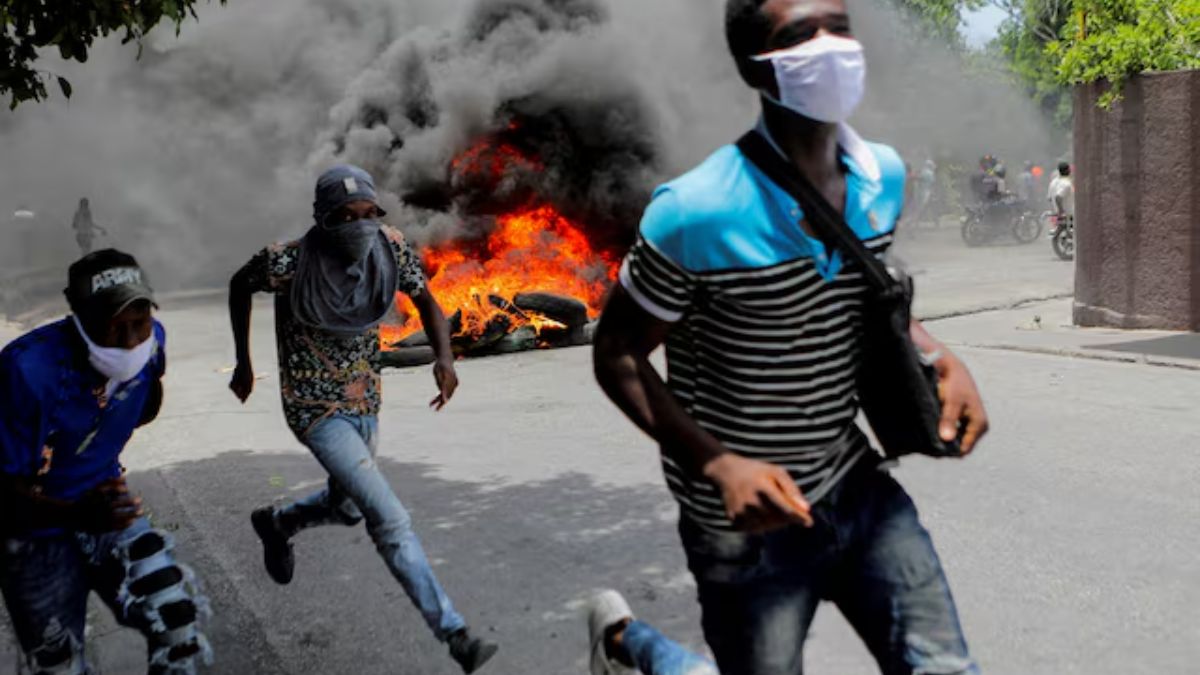The United Nations’ expert on human rights in Haiti said on Friday that the situation in the conflict-hit Caribbean nation had worsened and efforts to rebuild security must be amplified as a security mission deadline fast approaches.
William O’Neill, briefing reporters in Port-au-Prince at the end of a 12-day visit to the impoverished Caribbean island, described dire conditions that have left the population in an extreme state of insecurity and spreading starvation.
He visited areas in southern Haiti that, untouched by gang violence a year ago, are now struggling with “galloping inflation, lack of basic goods and flows of internally displaced people,” particularly affecting women and children. Only 28 percent of health services are functioning normally, O’Neill said, “and almost five million people are suffering from acute food insecurity.”
In one refugee camp he met an “anemic little girl” who had not eaten in two days and not been in school in over a year.
Powerful gangs armed largely with weapons trafficked from the United States have taken over most of the capital and expanded to nearby areas, driving mass displacement, food and medical shortages, record hunger and widespread sexual violence.
Its former government requested an international security mission to help police in 2022, and with less than two weeks left on the mission’s initial one-year mandate, less than a quarter of promised troops have deployed and results remain scarce.
Impact Shorts
More ShortsMore than half the island’s 700,000 internally displaced people are children.
The gangs are increasingly using sexual violence as a weapon to control the population, O’Neill said.
They have “trafficked children, forcibly recruited them into gangs, and often used them to carry out attacks” on police and public facilities.
The criminal gangs control more than 80 percent of Port-au-Prince, as well as key roads around the country.
The police meantime “lack the logistical and technical capacity to counter the gangs,” O’Neill said.
He said the Multinational Security Support Mission authorized nearly a year ago by the UN Security Council has so far deployed less than a quarter of its planned contingent of 2,500. At its core are 400 Kenyan officers deployed this summer.
“The equipment it has received is inadequate, and its resources are insufficient,” the UN expert said.
Police are overwhelmed. “We have to learn to walk on water,” one policeman in Jeremie told O’Neill.
Prison conditions, the UN expert said, were deplorable.
A prison in Jeremie, designed for 50 inmates, holds 470. “They sleep on floors flooded with rainwater and littered with filth,” sometimes going days without food.
“This enduring agony must stop,” O’Neill said.
He called on the Haitian authorities, appointed this year after the resignation of the unpopular government of Ariel Henry, to greatly step up efforts to combat pervasive corruption, saying, “efforts must be redoubled immediately.”
At the same time, he said, “it is crucial to stifle the gangs” by giving the international force the resources to effectively support the national police.
And with the criminals still receiving imported weapons, an international arms embargo must be tightened.
“It is a race against time,” O’Neill said.
The population “lacks everything.”
With inputs from agencies.


)

)
)
)
)
)
)
)
)



